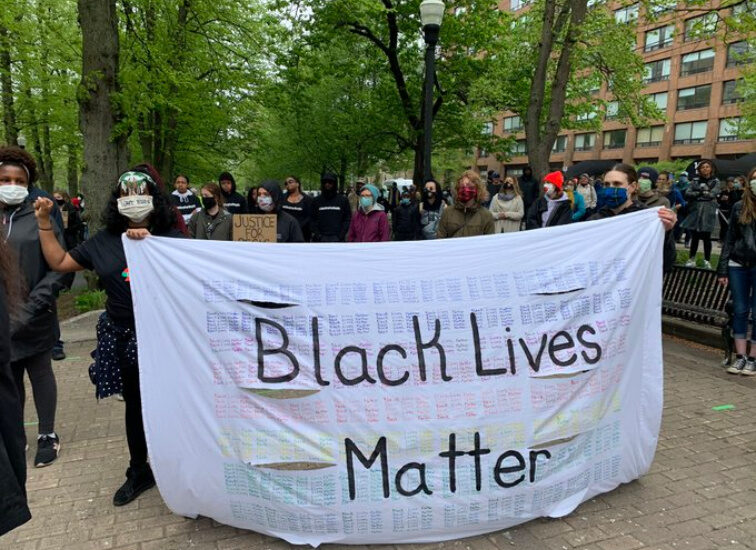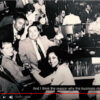
KJIPUKTUK (Halifax) – With the recent assassination of George Floyd by police in the United States and the death of Regis Korchinski-Paquet in Canada racism is in the spotlight once again. However, there are a few African Canadians who are suggesting that racism is somehow limited and not so bad here in Canada and as a people we ought to somehow be grateful for that.
It is one thing for white people to be in denial based on the maintenance of their undeserved privilege, but it is downright dangerous for any of us as African Canadians to be that unaware and misguided.
Although all individuals have a right to their opinions, one would hope those opinions are informed opinions. Of course there is “they don’t know that they don’t know” justification for their ignorance, but anybody can sense and feel the effects of racism and injustice.
During the past fifty years of my life I have personally experienced racism and injustice. Like most African peoples, I have felt the pain, frustration, anxiety, and panic attacks caused by racism. This suffering never goes away because racism never goes away.
I also know of literally thousands of incidents of racism in Canada including police brutality and murder. I personally know what it is like to lose a loved one to murder. Albert Ian MacDonald, a person of European descent, murdered my brother Warren Edward Sheppard, on March 13, 1996.
Racism in Canada like that of the United States is experienced daily. African Canadians experience racism in employment, housing, health care, politics, criminal justice, media, business, environmental issues, and the list goes on.
I strongly believe if one honestly surveyed African Canadians most would say they experienced racism. I also believe less than 30 percent of Europeans would acknowledge that African Canadians face racism on a daily basis and even fewer would admit that they have racial bias against African Canadians and other persons of colour, or discriminated against African Canadians at one point or another.
Over a number of years, when asked about racism, many white Canadians said that race relations in their own communities were good. This was also reflected to a lesser degree in The Environics Institute for Survey Research and the Canadian Race Relations Foundation Race Relations in Canada 2019 Survey. One should herein note that the absence of Persons of Color in your community speaks to racism.
In Canada and the United States, the political will to seriously address racism is not there, one of the reasons for this is that most European Canadians do not support any government action to make the necessary changes.
Case in point, myself and other African Nova Scotians and African Nova Scotians have been calling for body cams for some time to no avail, yet when a white female starts a website petition in support of body cams the municipal and provincial governments and the Halifax Regional Police all of a sudden are now seriously considering body cams.
African peoples in North America and world-wide are besieged with violence by police and from within the general population. We are targeted and any efforts to address this reality thus far have basically amounted to applying a band-aid to a mortal wound.
I know for a fact that African peoples around the world today have been negatively impacted by the recent killings. There is a vicarious trauma when acts of violence based on hatred and race are perpetrated against African people and these acts negatively affect the African Nova Scotian community as a whole.
For example, it was communicated to us in the aftermath of the murder of Mr. Floyd and Ms. Regis Korchinski-Paquet that these acts has brought back many negative and difficult memories of other acts of violence and trauma inflicted on African Nova Scotians over many, many years and the enslavement of African People here in Nova Scotia and Canada. We recognize that all crimes of anti-Black racism and hate impact the African Nova Scotian community as a whole.
If one has experienced directly or indirectly an extremely brutal physical attack based on anti-Black racism and hate it becomes stressful and disturbing and can leave you feeling helpless and emotionally shaken, and you most often become traumatized yourself.
Most times physical trauma resurrects psychological trauma that can leave many struggling with upsetting emotions, memories, and anxiety that is hard to rid oneself of. This, coupled with historical anti-Black racism and hate leaves many feeling numb, disconnected, and unable to trust other people, especially those charged with the responsibility to serve and protect.
When racialized physical violence is perpetrated on one or more members of the African community, it can take a long time to process the pain and to feel somewhat safe again. It is much like someone breaking into one’s home, there is the feeling of being violated and the frustration, hurt and awareness cause the homeowner to forever be suspicious.
Whether psychological trauma happened yesterday or years ago, it often continues to affect one’s life, thoughts and reactions.
As a result of recent and historical heinous violent acts, many if not most African Nova Scotians have been impacted.
Acts of racism and hate do adversely affect mental health. It does not take a genius, although the research is available, to appreciate that experiencing racism and hate induces physiological and psychological trauma. This in turn leads to unfavorable self-evaluations and self doubt that affects one’s psychological well-being.
When we as African Nova Scotians are forced without recourse to internalize the sustained racist and hateful acts that are perpetrated against us, this internalization can lead to cardiovascular disorders and diseases. This may be why there are increases in the number of African Nova Scotians diagnosed with hypertension, heart disease and cancer, etc.
In the African Nova Scotian community, after the trauma of direct or indirect racism is perpetrated on an individual, individuals and the greater community try to move on, as we have been taught to rise above it. But the effects of this kind of trauma run deep and do not just go away.
Coping with racial trauma or a terrorism disaster can affect many, even if they have not directly been involved, and this presents many challenges.
Although we might not have been in Toronto when Regis Korchinski-Paquet was killed and we most likely were not in Minneapolis when George Floyd was assassinated, many of us are still affected. Viewing and or knowing about these incidents can most times produce traumatic stress.
Some, I am sure, believe one or two incidents of racism and hate are given too much attention. However, closer observation reveals a lifetime of acts of racism and hate that accumulate and therefore this festering physical and psychological wound compounds the effects on individuals of African descent.
Trauma from racial violence over time can develop reduced self-esteem and trust and people internalize the hatred according to the American Psychiatric Association. Research also shows how racialized trauma may result in Post-Traumatic Stress Disorder (PTSD). It leaves persons of African descent anxious and hyper-vigilant and often depression can result based on feelings of powerlessness to change the system that supports racism and hate based on privilege, power and control, and profit.
Here in Canada and Nova Scotia, African Canadians have been suffering the effects of racialized trauma and hatred for far too long and the price is too high. We cannot remain silent and allow it to continue without a collective response in an effort to try and stop or at least limit our physical and psychological pain and suffering.
Denial by anyone anywhere does not help.
BLACK LIVES MATTER!
Raymond H. Sheppard




Very good and insightful article.
Being an African Nova Scotia woman and Person of color. I too have felt these Dramatic Effects of racism, Though many would like to believe it doesn’t happen at all . So they can feel justified in their pride. Sadly these effects don’t go away. These injustices against African peoples are Unacceptable. #Blacklivesmatter
I’m so proud of raymond Sheppard for advocating for our black community. He is knowledgeable and understands that this runs deep. Along with our children who have to deal with it from teachers and peers, growing up with this social media is tough enough then adding racial diversity is hard on our children. We need to teach all of our children to know the truth and the difference of how to treat everyone equally.
Great article Raymond! I think an external organization/person should investigate every single department for antiBlack racism within the city, specifically HRM. This should be the starting point! Make the report public so we know where injustice have previously occurred and where/how currently happening today.
“Each time we are silent in the face of injustice, we acquiesce in the downfall of freedom.” Unknown